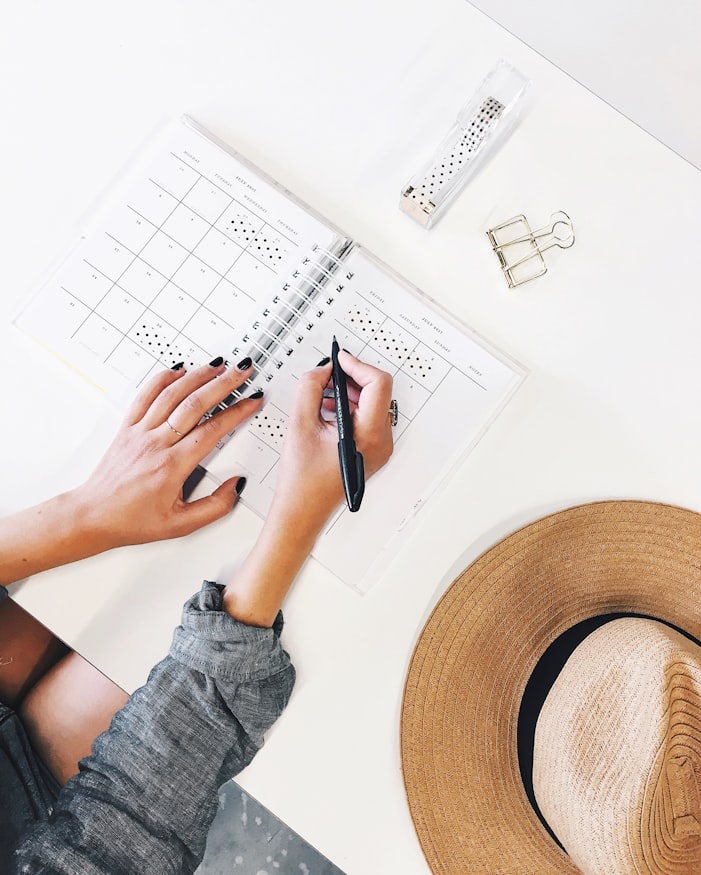This post may contain Affiliate Links, which means we may receive a commission if you click a link and purchase something. Please check our Disclosure Policy for more details.
Honestly, I hate the word budget, because of how complicated everyone makes it seem! To start a budget, is not as complicated as you’ve been told. You don’t need to be good at math, or be in love with spreadsheets.
Budgeting has been made so complicated, with all these methods, and the overwhelming amount of knowledge that exists, that realistically you do not need! In reality, it is simple.
A budget is a plan of how you’re going to allocate the money that is coming into your bank account. It lets you give each dollar coming in a purpose!
A budget really is just a tool, that helps you create a plan for your money.
Why you need a budget
Now that we’ve simplified what a budget is, it is a plan. You need a budget, because you need to plan for your money.
The advice that I would always get for money, was that you must save it! And I never understood that. What is the point of saving money? We have to take it a step further, and actually give each dollar that we earn a purpose. That purpose could be to help you achieve your goals!
Think of your money as a tool to get you to your goals, whatever that may be. If you need a simple framework to better plan your financial goals, I can help!
So yes, unfortunately, you kinda need something that vaguely resembles a budget if you want to have a serious plan for your money goals!
5-step process to start a budget
- Your monthly income: Figure out how much you are making from all sources. Understandably this is difficult if you’re a business owner or freelancer.
Tip: If you’re a business owner or freelancer, use an average of the last 3 or 6 months, as long as it represents your actual income - Your monthly expenses: Write down and categorize what you need to spend money on. This is probably the most time-consuming and tedious part of creating a budget. But it is also the most important!
Tip: Look through your credit card statements, your checking accounts, and figure out where you’re spending your money every month. - Subtract your income from your expenses. This is the money you will have leftover if that’s how you spend your money.
- If you have money leftover (i.e.: positive number), yay! Allocate your savings, investment account or towards paying down debt depending on your situation.
- If you don’t have money leftover: If your income minus your expenses comes up with, rework step 2. Unfortunately, you are going to need to adjust the fun expenses and the things that you want, rather than you need. Your future plans might include a way to earn more money.

How often should I budget
The exercise we did above is based on a monthly budget. Once you start your budget, you can decide what works for you. You might find it easier to keep in touch with your money on weekly or monthly basis, or even daily! Choose what works for you.
At the minimum, every month you should go back and see if what you predicted in your budget, is actually how much money you earned, and the money you spent. If it is not, figure out where you went astray, and rework the budget. Maybe you missed an item, an emergency came up.
What are the best ways to budget
Old fashioned pen and paper
Sometimes, the best and most uncomplicated way is to use pen and paper. That way you’re not distracted by the other tabs open on your computer, or constant notifications on your phone.
Spreadsheets
I’m impartial to spreadsheets, because for me, that that’s the best way for me to organize my money.
It’s easy to correct mistakes, add up numbers, stay organized.
Digital Tools
There are lots of tools to help you get your budget started!
One of my favorites that I used for a long time is Mint!
With Mint, you link your accounts, and you can get a good handle on how your money is doing. You can track how you’re doing on your budget!
What if my budget didn’t work
Here’s the thing, your budget will change! Once you start a budget, it gets easier. You have the basic framework to work with, and it gets easier to make changes in a way that works for you.
Maybe you get a raise or a promotion, or you need to get a car for work, which was not in your initial budget. All of these expenses, change the way you budget. When things change in your life, it will affect how you budget your money.
Don’t fret, rework your budget, so that it is realistic for you!
What are all those budgeting methods that people talk about?
When you say budget, you’re really talking about giving each dollar a purpose. That purpose could be for an expense, for paying down debt, for saving, or for investing.
Budgeting methods is the game plan people use to make it easier to allocate their income to their spending.
I’ll have a post up soon about how to pick method of budgeting or the plan to allocate your money!
In my opinion there is no right or wrong way, but it’s nice to learn what works for other people.
If you’re interested in looking these up, some popular ones are 50/30/20, 80/20, envelope/cash methods, and zero based budgeting!
Your Turn
Gather all your cards, log into your online banking system, just get started!
Trust me, it gets easier. To start a budget, is easy. Sticking to a budget is often the hard part!
Cheers,

